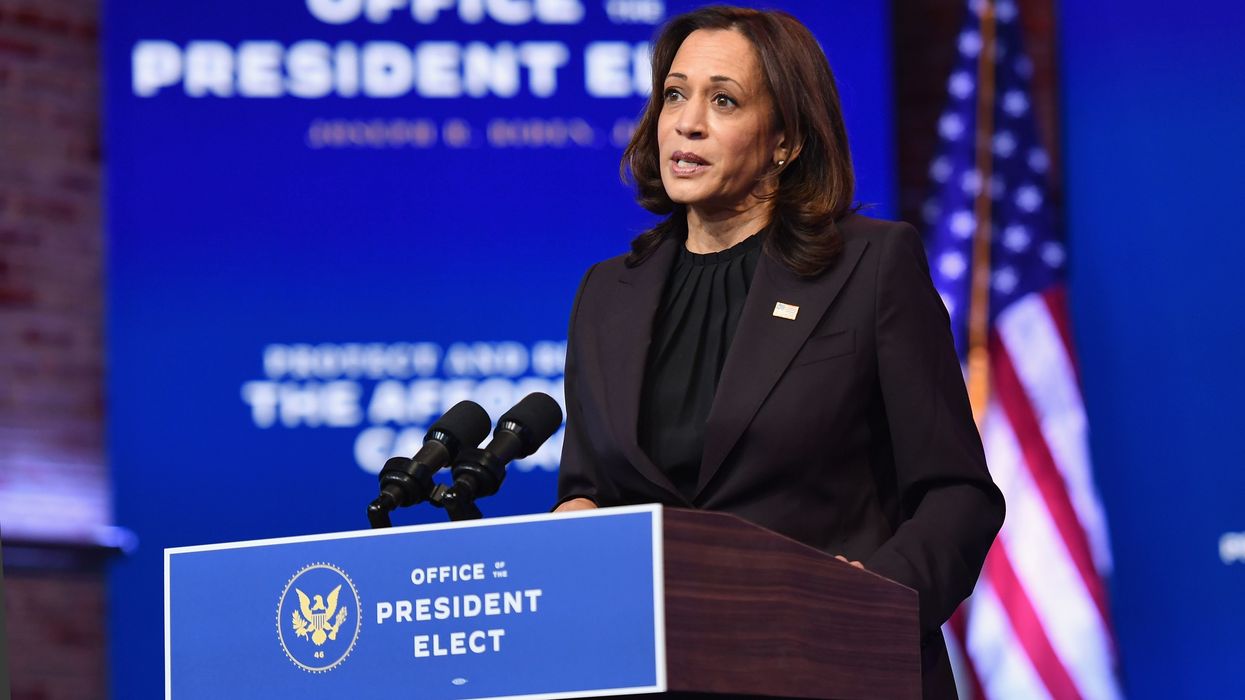When Americans voted this fall, the candidates on their ballots did not reflect the diversity of the United States.
Despite recent gains, women and people of color still do not run for office as frequently as white men. In part, this is because they face skepticism about their electability.
When Katie Hill launched her successful 2018 campaign for Congress, for example, fellow Democrats told her a woman couldn't winin her California district. When Adia Winfrey was exploring a run the same year, a senior party official told her there was "no point"continuing her nascent campaign. The problem? As a Black candidate, she seemed unelectable. And in Michigan, congressional candidate Suneel Gupta, an Indian-American, heard similar concerns. As Gupta recounts, the rationale from some local Democrats was, "I'm not racist, but my neighbor is racist ... so I don't think you'd be a strong candidate."
These comments reflect a subtle yet pervasive form of discrimination in politics. Call it "strategic discrimination."
This occurs when a party leader, donor or primary voter worries that others will object to a candidate's identity. As a result, these key actors may not endorse, fund or vote for candidates who fall outside the norm due to their race, gender, ethnicity, religion or sexual orientation.
The problem is not direct bias or animosity. Rather, strategic discrimination is driven by concerns about other people's views.
As was on full display in this year's Democratic presidential race, even liberals who typically value diversity can engage in strategic discrimination if they think others are biased.
In focus groups, for example, Black Democratic primary voters said they saw promise in Kamala Harris' candidacy, but they hesitated to support her because they worried America wouldn't elect a Black woman.
Strategic discrimination typically occurs prior to a primary election. Of course, party leaders want to support candidates who share their policy views. But they also want to win. So when they are deciding whom to support, party chairs, delegates, donors and elected officials make speculative judgments about how candidates will perform in the general election.
In this "futures market"of politics, diverse candidates are at a sharp disadvantage. In my research, I've found Americans see hypothetical white male candidates as more electable than equally qualified Black women, white women and, to a lesser degree, Black men.
The perceived electability gap is especially severe for women of color. Studies show Black women are viewed as much less competitive than either white women or Black men. Compared to a white man with the same education and experience in elected office, a Black woman is nearly a third less likely to be considered "very electable."
The term "electable" has long been part of the American political lexicon, and the buzz around electability has only grown louder as political polarization has increased. This poses a problem for women and people of color seeking to enter politics, because electability is a biased concept.
For a study last year, the MIT Political Experiments Research Lab surveyed a nationally representative sample of nearly 2,000 Americans. On average, they guessed 47 percent of the electorate would not vote for a woman presidential candidate and 42 percent would not vote for a Black candidate. Yet public opinion research suggests no more than 15 percent might refuse to vote for a presidential candidate based on race or gender.
Americans have a long history of believing others are more biased than they really are. Studies show that in the 1960s, even as Americans personally came to oppose racial segregation, they incorrectly believed others still supported it. As social psychologists Dale Miller and Deborah Prentice have said, such misperceptions can "act as a brake on social change," anchoring decision-making in the prejudices of the past.
Today, a similar dynamic exists in politics. Although women and people of color win at the same rates as white men, they are seen as less competitive.
Instead of taking a risk on a woman or person of color, party leaders and primary voters may prefer a white, male candidate whose prospects for success feel more certain.
That's strategic discrimination — and it shapes who is able to become a viable candidate and who appears on the ballot. This matters because women and people of color remain underrepresented in politics.
So what can candidates do to overcome strategic discrimination? How can they garner the money and institutional support needed to become viable candidates?
In one of my studies, I found that when subjects read messages emphasizing the importance of Black turnout, they saw Black candidates as more competitive.
Success stories from demographically similar candidates may also help. For example, when my subjects read about the 2018 victory of Lauren Underwood – a Black woman who defeated a white male incumbent in a majority-white Illinois congressional district – they thought female and Black candidates would be more capable of winning in 2020.
However, in the real world of politics, this approach is far from foolproof.
Many of this year's female presidential contenders argued unsuccessfully that "women win." And Sen. Cory Booker sought to boost his perceived electability by emphasizing that Black turnout would be key to beating President Trump. Yet none of these candidates ended up the Democratic nominee.
An alternative strategy is to quash doubts about electability by notching key early victories. When Barack Obama began his presidential campaign in 2007, many Black primary voters were skeptical that whites would support him. But Obama gained crucial momentum when he won the Iowa caucuses, proving that yes, a Black man could win even in the whitest corners of America.
Most candidates will not be able to replicate Obama's narrow path to victory. Nonetheless, as diverse candidates continue to run, they may eventually succeed in changing assumptions about who looks like a winner in politics.
This article is republished from The Conversation under a Creative Commons license. Click here to read the original article.
![]()



















